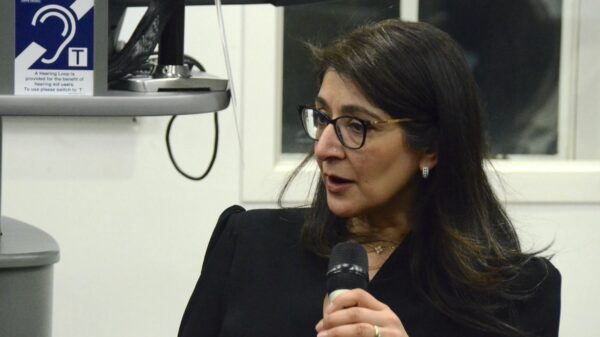Staff writer Aashita Chaturvedy recounts the compelling entrepreneurial insights brought by several Female entrepreneurs at two panels hosted at the LSE.
“There is no better time to be a female founder” was the common consensus at the LSE Women in Entrepreneurs Panel on 19th March. Several extraordinary women had just described details of their journeys and struggles when they began, grew and managed their startups.
Co-hosted by LSE Women in Entrepreneurship and LSESU Entrepreneurs, the event brought together a range of London university students for two panels: the first one focusing on the ‘Power of Brand and Community’, and the second on ‘Disrupting the Norm’.
A step-by-step on how to leverage brand and community
The first panel focused on building influence, trust and scale with Heinin Zhang, founder of the YC-backed private chef hire app yhangry. She highlighted the key learning experience of validating your problem space before building; making sure there was a demand for your product before putting your entire heart into the concept. She was joined by the founder of Two Comma PR, Sabrina Stocker, and Verity Park of tbhtalent to discuss balancing entrepreneurship with the rest of their lives, emphasising setting boundaries and avoiding eventual burnout by focusing on your own journeys.
A particularly notable comment from Stocker advocated for intuitive working: “hormones change the way you’re going to show up.” She reiterated taking time to learn about the different parts of your own cycle and tracking your mood for increased productivity, especially when hustling like a founder. “Men’s hormones change over 24 hours,” stated Stocker, emphasising that more effective results come as a byproduct of understanding your work ethic, rather than merely pushing through challenging times when you reach your physical and mental limits.
Picking niche markets to disrupt the norm
Ayesha Ofori, Nina Mohanty, Pip Jamieson and Sophia Parvizi-Wayne sat on the second panel, sharing their thoughts on how niche markets drive innovation. Although the women later laughed that their ideas were perhaps not all that niche, I found that their unique buisness ideas stemmed from a peculiar story in their ideating and/or funding journey. Their individual ways of handling their companies spoke volumes of their drive and creativity.
Jamieson recalled that she secured funding for The Dots, the professional networking and hiring app, from an old connection she had helped at a much earlier stage in their careers, emphasising the importance of consistently building strong networks as you keep growing. Ofori described Propelle, the first investment platform solely for women, as emerging from a persistent ask for guidance and confidence from women in her financial education groups.
The idea planted itself in front of her and would not budge. Parvizi-Wayne’s link between building Kanjo as a pre-diagnostic tool for neurodiverse children, while still remaining a professional runner, is an incredibly striking demonstration of her willpower needed to keep a business ‘running’.
Bloom Money came from Mohanty’s personal connection to traditions of building communal wealth, or ‘money pots’. Her background allowed her to develop this digital solution for ethical and sustainable financial contribution schemes while shedding the negativity that accompanies the term ‘immigrant’. This was a critical insight into a niche market, as Bloom is a divergence from the typical products usually geared towards ethnic communities, instead providing a financial solution that upholds tradition for the modern world.
Panels such as these allow the King’s student community access to a wonderful variety of viewpoints and stories, especially when interested in building something of your own. Being aware of the potential hurdles when starting your own journey can help you adequately prepare and develop the necessary resilience for a successful idea.
Although just a snapshot, all the featured startups were evidently geared by incredibly passionate women sitting at the helm, a true testament to the possible futures of female founders regardless of the societal barriers in place.

















